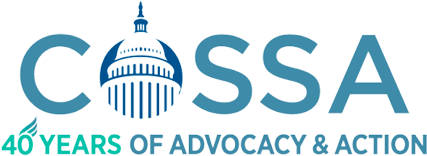When I think of AAHRPP, I think of education, collaboration, compliance, collegiality...
About: Meet Our Team
AAHRPP's Board of Directors is composed of individuals concerned with research involving humans as research participants. Several of AAHRPP's Board members represent research participants or other community stakeholders.



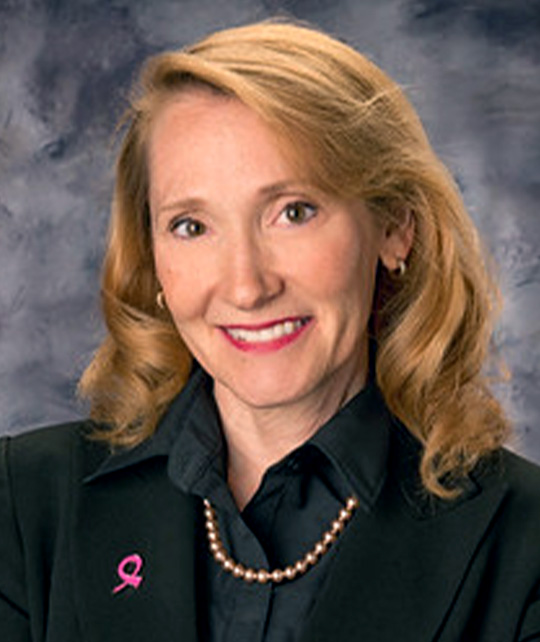
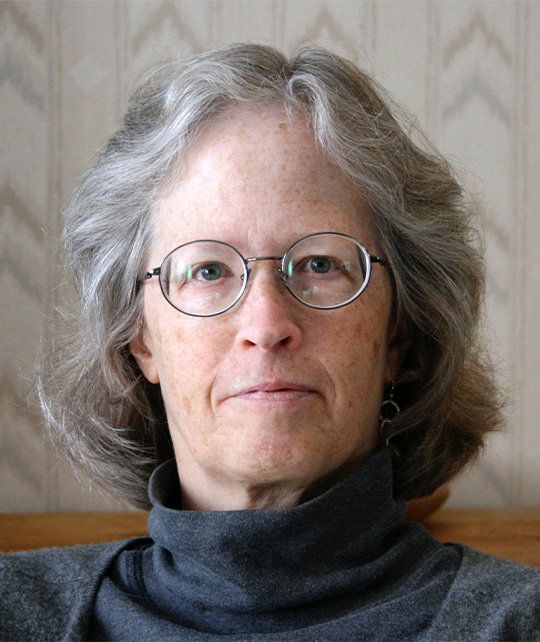
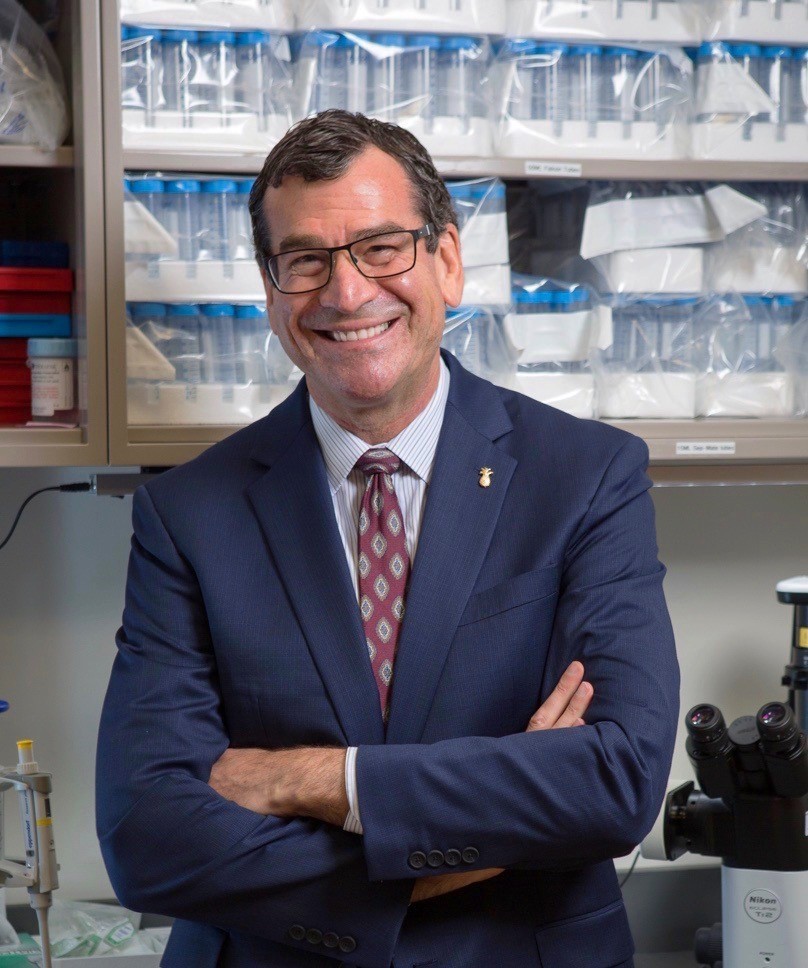




Amal Al Omari, PhD, MS
Member
Chief Scientific Officer, Office of Scientific Affairs and Research
King Hussein Cancer Center
Amal Al-Omari holds a PhD degree in Clinical Pharmaceutical Sciences from the University of Iowa, Iowa City. She has more than 20 years of experience spanning pharmaceutical research & development, academia, oncology research and research administration. In her capacity as the Chief Scientific Officer at King Hussein Cancer Center she leads the Office of Scientific Affairs & Research which hosts the KHCC’s Hospital-Based Cancer Registry, the Center for Research Shared Resources (with a dedicated clinical trials unit) and the Center for Grants and Contracts Management. Dr. Al-Omari is also responsible for review of institutional research collaboration agreements, material transfer agreements, research grant agreements and all clinical trial contacts with CROs and pharmaceutical companies. She is also a member of the KHCC's Research Council.
Amal's research interests are mainly related to the epidemiology of Non-Communicable Diseases (NCDs), in particular oncologic malignancies in Middle Eastern populations, especially in Jordan. In addition to research exploring genetic and epidemiologic predictors of outcome to cancer treatment among Jordanians and other Middle Eastern populations. Dr. Al-Omari initiated a research quality assurance project at KHCC by establishing and implementing a comprehensive Human Research Protection Program. The program was awarded Full AAHRPP accreditation in June 2019 and KHCC was the first institution in Jordan and among very few cancer centers worldwide to have this quality designation. She also oversees strategic networking with leading institutions at the regional and international level to promote and advance clinical research activities, increase patient access to clinical trials, as well as research training and capacity building.
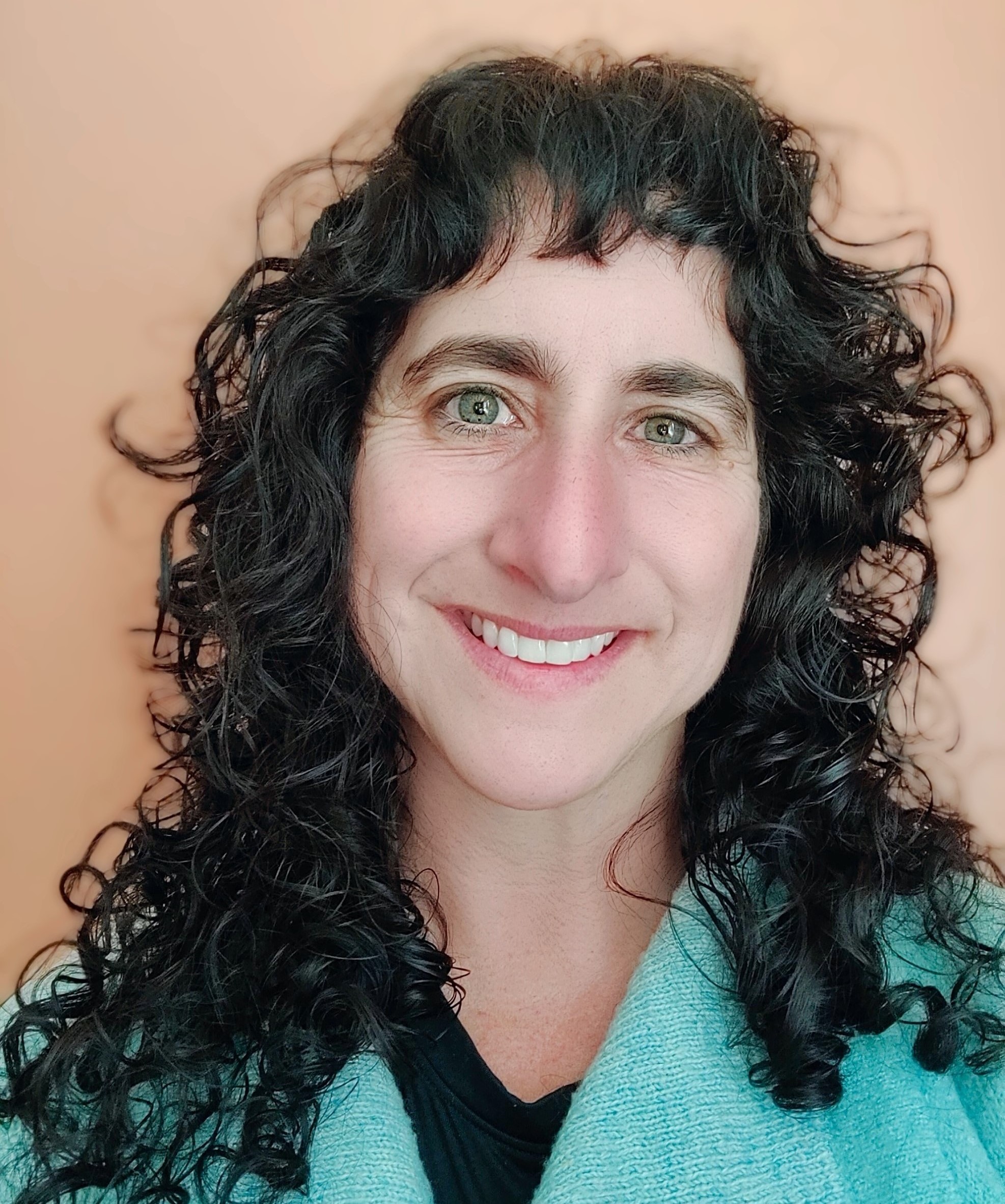

Amy Ben-Arieh, JD, MPH, CHPSE
Member
Executive Director
The Fenway Institute (TFI) at Fenway Community Health
Amy Ben-Arieh is the Executive Director of the Fenway Institute (TFI) at Fenway Community Health. She is a member of Harvard Catalyst's Regulatory Foundations subcommittee on SBER, and a member of Portsmouth Regional Hospital's research ethics committee. Prior to joining TFI, Amy served for several years as an associate chair of Partners Human Research Committee. Her educational background is in health law, bioethics, and human rights.


Linda Coleman, JD, CIP, CHC, CHRC, CCEP-I
Member
Associate Vice Provost, Research Policy & Integrity
Stanford University
Linda Coleman is the Associate Vice Provost, Research Policy & Integrity at Stanford University. Linda was previously the Director of the Human Research Protection Program at Yale University. Before joining Yale in 2016, Ms. Coleman held several positions at Quorum Review an independent IRB and consulting company acquired by Advarra in 2019. (She was Vice President of Legal & Regulatory Affairs in 2016, Director of Regulatory Affairs & General Counsel from 2011-2016, and Director of Regulatory Affairs from 2007-2011). Prior to Quorum, Ms. Coleman was an attorney at Bennett, Bigelow & Leedom where her practice focused on health and employment law including Medicare and Medicaid reimbursement, litigation, transactional, and behavioral health.
Ms. Coleman is actively involved with several organizations. Some of her areas of involvement include the following: IRB harmonization; return of research results; diversity, equity, and inclusion in research; decentralized clinical trials; common rule and sIRB implementation strategies; research data protection; clinical trial process improvement; research quality and compliance; and the use of technology in research. She is also a frequent presenter on a variety of topics such as operations management, research integrity, good clinical practice, research oversight, the operationalization of regulatory and institutional requirements pertaining to research, and global bioethics. In 2019, Ms. Coleman was appointed as a member to the Secretary’s Advisory Committee on Human Research Protection (SACHRP) and SACHRP’s Subpart A Subcommittee (SAS) where she evaluates and provides recommendations on current issues related to human subjects research.
In addition to her work in human research protection, Ms. Coleman has been actively involved in the area of education access through her work as the Executive Director and Founder of Education Access Network, a nonprofit organization dedicated to providing students with limited financial resources with free and low cost access to courses and programs aimed at helping students prepare for and succeed in higher education and other career endeavors.


Jonathan Green, MD, MBA
Secretary
Director, Office of Human Subjects Research Protections
National Institutes of Health
Jonathan Green, MD, MBA, is Director, Office of Human Subjects Research Protections for the National Institutes of Health where he oversees the human research protection program for the NIH Intramural Research Program. Prior to joining the NIH, Dr Green was professor of medicine, pathology, and immunology, as well as Associate Dean for Human Studies, and Executive Chair of the institutional review board at Washington University School of Medicine in St. Louis, MO. He received his medical degree from Wayne State University in Detroit followed by residency training in internal medicine at Boston City Hospital. He then completed a fellowship in pulmonary and critical care medicine at the University of Michigan Medical Center, and additional post-doctoral training at the University of Chicago. He received an MBA from Washington University Olin School of Business in 2017. He is board certified in internal medicine, pulmonary diseases, and critical care medicine.
Dr. Green continues to serve as an attending physician in the Medical Intensive Care Unit and Pulmonary Consult Service at the NIH Clinical Center and has conducted both basic science and clinical research on the regulation of the immune response. Dr Green has had a long standing interest in biomedical ethics. He had been a member of the Barnes Jewish Hospital Ethics Committee since 2000, leading the clinical ethics consultation service from 2001-2005 and serving as Chair of the Ethics Committee from 2005-2009. After joining the Washington University Institutional Review Board in 2008, he assumed the role of committee co-chair in 2009. In 2010, he was appointed Associate Dean of Human Studies and Executive Chair of the IRB at Washington University in St Louis. Dr Green served on the Secretaries Advisory Committee on Human Research Protections (SACHRP) from 2015-2018, also serving on the Subpart A subcommittee.


Harold (Hal) Hackerman, CPA
Treasurer
Retired
Ellin and Tucker, Chartered


Cindi Hart, RN, CIS
At-Large Member
President and Founder, Spokes of Hope
Retired Customer Success Partner, Regenstrief Institute
Cindi Hart is a retired Registered Nurse who worked in medical informatics supporting principal investigators. A two-time cancer survivor and caregiver to her husband who is also a cancer survivor, Cindi is an internationally recognized cycling and speed skating coach, and President and Founder of Spokes of Hope, a nonprofit organization focused on survivorship.
Ms. Hart and Spokes of Hope support patients with cancer; survivors in remission, "emphasizing that cancer isn’t contagious, but that hope is, Cindi is changing the way cancer is perceived and cycling towards the future to empower, unify and inspire cancer survivors.” Cindi comes to AAHRPP with the intention of optimizing her experiences and paying it forward.


Yefrenia Henríquez Taveras, MPH, MHA, CCRP, CHES, CIP
Member
Quality Assurance & Education Specialist
Teachers College, Columbia University
Yefrenia Henríquez Taveras is the Quality Assurance & Education Specialist at Teachers College, Columbia University, where she leads initiatives to enhance institutional compliance through the development of post-approval monitoring systems, internal audits, and comprehensive training programs on research ethics and regulatory compliance. Concurrently, she serves as the IRB Compliance Coordinator at the University of New England, refining policies and procedures to align with federal regulations and supporting compliance through post-approval monitoring and investigator training. Additionally, Yefrenia serves as a non-scientific Board Member at Sterling IRB, where she provides expert regulatory and ethical review of research protocols.
With over 15 years of experience in research compliance and ethics, Yefrenia has held pivotal roles at top-tier R1 research institutions, including Weill Cornell Medicine, Columbia University Irving Medical Center, The Icahn School of Medicine at Mount Sinai, and Albert Einstein College of Medicine. At these institutions, she managed clinical research portfolios, led regulatory reviews, and directed quality improvement initiatives that streamlined IRB processes, reduced review times, and improved audit readiness. Her expertise spans clinical trials, socio-behavioral and biomedical research, and the integration of data protection measures within compliance frameworks.
Yefrenia is deeply committed to fostering diversity, equity, inclusion, and access in research environments. She holds certifications as a Certified IRB Professional (CIP), Certified Clinical Research Professional (CCRP), and Certified Health Education Specialist (CHES), underscoring her dedication to advancing ethical research practices and educational outreach. Her work has been featured in peer-reviewed journals such as the Journal of the American Medical Directors Association, JAMA Network Open, and the Journal of the American Geriatrics Society, covering critical topics like Medicare's Home Health Value-Based Purchasing, mental health among home health aides, and culturally tailored interventions for Hispanic caregivers.
As a member of AAHRPP's Board of Directors, Yefrenia brings a wealth of experience and a steadfast commitment to advancing research integrity. Her leadership focuses on fostering transformative compliance initiatives and reinforcing ethical practices across diverse research environments.
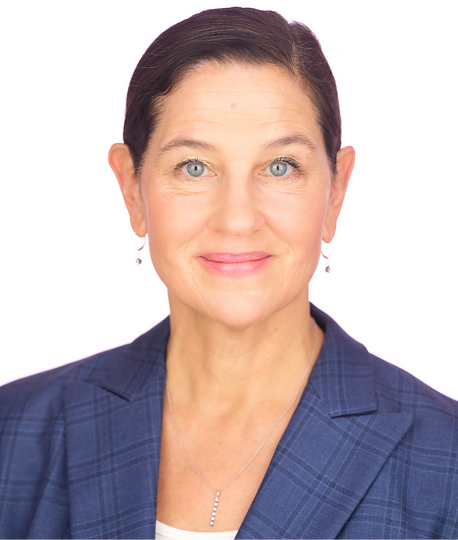

Elizabeth Jacobs, MD, MAPP, FACP
Member
Professor and Chair
Department of Internal Medicine
University of California Riverside School of Medicine
Elizabeth Jacobs is Professor and Chair, Department of Internal Medicine at the University of California Riverside School of Medicine . In previous roles, Liz was Professor of Medicine at Tufts University Medical Center, Vice President for Research at MaineHealth, the Inaugural Chief of Primary Care and Valued Based Health, Professor of Medicine and Population Health Science and Associate Chair for Research in the Department of Medicine at the University of Texas at Austin’s Dell Medical School. She attended medical school at the University of California at San Francisco and trained as a general internist at Brigham and Women’s Hospital in Boston. She completed a Robert Wood Johnson Clinical Scholars Fellowship and an Associate Masters in Public Policy at the University of Chicago.
After struggling to care for limited English-speaking patients during medical school and residency, she decided to pursue a research career investigating disparities in health care. Dr. Jacobs’ research interests include access to, and cultural specificity of, medical care delivered to patients, the impact of interpreter service interventions on the cost and quality of healthcare, health literacy and numeracy, and the role that trust in health care plays in racial/ethnic disparities in health care. Her research has been supported by grants from the National Cancer Institute, the National Institute on Aging, The Robert Wood Johnson Foundation, The California Endowment, The Russell Sage Foundation, The Patient Centered Outcomes Research Institute and the Office of Minority Health.
She is recognized as an expert on the provision of linguistically accessible and culturally competent care and has served on Office of Minority Health, Joint Commission, National Quality Forum, Patient Centered Outcomes Research Institute and AHRQ expert panels. She has published numerous peer-reviewed journal articles, edited two books, and authored numerous book chapters. In addition, she works with other investigators to design culturally specific research, and teaches residents and medical students about practicing culturally sensitive medicine. Dr. Jacobs has practiced as a primary care physician in Federally Qualified Health Centers her entire career and looks forward to continuing to practice in Maine.


Nancy M P King, JD
Member
Emeritus Professor of Social Sciences and Health Policy
Wake Forest University School of Medicine
Nancy M P King is Emeritus Professor in the Department of Social Sciences and Health Policy and Wake Forest Institute for Regenerative Medicine at Wake Forest University School of Medicine, and former Co-Director of the Center for Bioethics, Health, and Society and the Bioethics Graduate Program at Wake Forest University. Her scholarship addresses a range of bioethics issues, including: informed consent, benefit, and uncertainty in health care and research; the development and use of novel experimental biotechnologies; international and cross-cultural questions in human subjects research; and equity and justice in health care and research.
Professor King has published over 100 scholarly articles and book chapters, and is co-editor of The Social Medicine Reader (3rd ed., Duke University Press, 2019), Beyond Regulations: Ethics in Human Subjects Research (UNC Press 1999), and Bioethics, Public Moral Argument, and Social Responsibility (Routledge 2012). Her new book, Bioethics: A Path Forward, coauthored with Larry R. Churchill and Gail E. Henderson, will be published by UNC Press in 2022. Professor King teaches a variety of courses in bioethics, medical humanities, and research ethics to medical students and faculty and to graduate students in bioethics and the health sciences, and has taught bioethics in national and international settings. She is a fellow of the Hastings Center, and has served on hospital ethics committees, IRBs, DSMBs, the NIH Recombinant DNA Advisory Committee, and the DHHS Secretary’s Advisory Committee for Human Research Protections.


Scott Lipkin, DPM, CIP
Vice Chair
Vice President for Research
Baptist Health South Florida Health System
Scott Lipkin, DPM, CIP, a seasoned healthcare executive with over 35 years of experience, currently serves as the Corporate Vice President for Research at Baptist Health South Florida Health System (BHSF) and as the Chief Research Officer of the Miami Cancer Institute. Dr. Lipkin serves as Vice Chair for the AAHRPP Board of Directors.
Scott's extensive career encompasses roles as a research administrator, human research protection program administrator, institutional review board chair, management consultant, podiatric physician and surgeon, and clinical research investigator. He earned his Doctor of Podiatric Medicine from Temple University School of Podiatric Medicine and completed his residency at St. Mary Hospital in Philadelphia.
Before joining BHSF, Dr. Lipkin held key positions at Lehigh Valley Health Network over a period of 25 years, including Chief of the Division of Podiatric Surgery, Chair of the Institutional Review Board, Director of the HRPP, and Chief Research Officer. He also spent six years working in a research and compliance practice at a management consulting firm.
Committed to advancing research and mentoring future professionals, Scott has served as an adjunct instructor at Loyola University School of Law, a member of the Council for Certification of IRB Professionals, co-chair of the PRIMR AER workshop planning committee, and an AAHRPP site visitor, team leader, and Council member. He is a frequent speaker at national conferences.


Heather Pierce, JD, MPH
Chair
Acting Chief Scientific Officer; Senior Director for Science Policy; Regulatory Counsel
Association of American Medical Colleges (AAMC)
Heather Pierce is the Acting Chief Scientific Officer, Senior Director for Science Policy and Regulatory Counsel at the Association of American Medical Colleges (AAMC) and the Director of Policy for the AAMC’s Center for Health Justice. She serves as AAMC's leader for scientific regulatory issues including human subject protections, clinical research, conflicts of interest, research data sharing, evidence-based regulation, diagnostic test development, and collaborations between industry, government, and academia in biomedical research. She is the subject matter expert for the AAMC's Forum on Conflict of Interest in Academe and for Convey, the AAMC's global financial interest disclosure system. During the COVID-19 pandemic, she has led the organization on issues related to COVID-19 testing and regulatory aspects of vaccine and treatment development.
Ms. Pierce currently serves on the Board of Directors for the Association for the Accreditation of Human Research Protection Programs (AAHRPP) and was previously the Chair of the Board of Directors of Public Responsibility in Medicine and Research (PRIM&R). She regularly speaks at national forums on issues related to the protection of human subjects, regulatory burden, research security, research ethics, biospecimens, scientific misconduct, and legislation and policymaking related to research, and has published articles and commentaries on these topics in Nature, Science, The New England Journal of Medicine, JAMA, the Journal of Public Health Management and Practice, and The American Journal of Bioethics. She has served on committees, working groups and task forces of organizations including the National Academies of Sciences, Engineering, and Medicine, The Pew Charitable Trusts, and the National Dialogue on Healthcare Innovation. Prior to joining AAMC, Ms. Pierce was an attorney in the Health Care Group of the law firm of Ropes & Gray LLP in New York. Her regulatory practice focused on medical research and clinical care. She received her law degree from NYU School of Law and her MPH in Health Law from Boston University.


Stephen Rosenfeld, MD, MBA
Immediate Past Chair
Executive Director
North Star Review Board
Stephen Rosenfeld is a hematologist who earned his medical degree from Cornell. He trained in internal medicine at Dartmouth and completed his hematology fellowship at the National Heart, Lung, and Blood Institute of the National Institutes of Health (NIH). He spent 19 years at NIH, holding positions at NHLBI and the NIH Clinical Center, doing both basic and clinical research, and finally working in medical informatics and administration. He ended his time at the NIH as the Chief Information Officer of the Clinical Center.
Dr. Rosenfeld moved from Bethesda, Maryland to Portland, Maine, where he was the CIO of MaineHealth, a large independent delivery network, before moving to Olympia, Washington as the CEO of the Western Institutional Review Board (WIRB) and then the Executive Board Chair of Quorum Review, a position he held until 2019. In addition to his medical degree, he holds a Master's in Business Administration from Georgetown. Dr. Rosenfeld received the honor of Distinguished Professor of Medicine from Daegu Catholic University Medical Center in Korea in 2013. In July 2013, he was appointed to the Secretary's Advisory Committee on Human Research Protections (SACHRP) and in 2016 he was appointed Chair of SACHRP, and served in that role until 2021. In 2019 he joined the board of the Association for Accreditation of Human Research Protection Programs (AAHRPP).
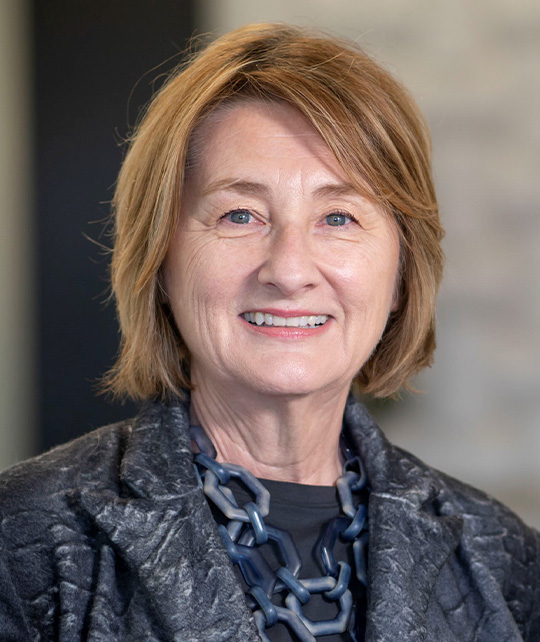

Julie Anne Zawisza, MA, MT(ASCP)
Member
Senior Director, Global Regulatory Policy
Merck & Co., Inc.
Julie Anne Zawisza is Senior Director, Global Regulatory Policy at Merck, a leading pharmaceutical company that works to bring forward medicines and vaccines for many of the world’s most challenging diseases. Prior to serving in her current role, Ms. Zawisza was Global Head of Regulatory Policy and Intelligence with Baxalta, a biotechnology company focused on rare diseases. Ms. Zawisza previously served in a variety of roles at FDA including Associate Director for External Relations at the Center for Device Evaluation and Research, Senior Advisor, Global Regulatory Policy, Director of the Center for Drug Evaluation and Research’s Office of Communications, and Assistant Commissioner for Public Affairs.
Ms. Zawisza holds an undergraduate degree in medical technology from the University of Michigan, a master’s degree in Science, Technology and Public Policy from The George Washington University, and a certificate in public health from Georgetown University.
Our Founding Members



